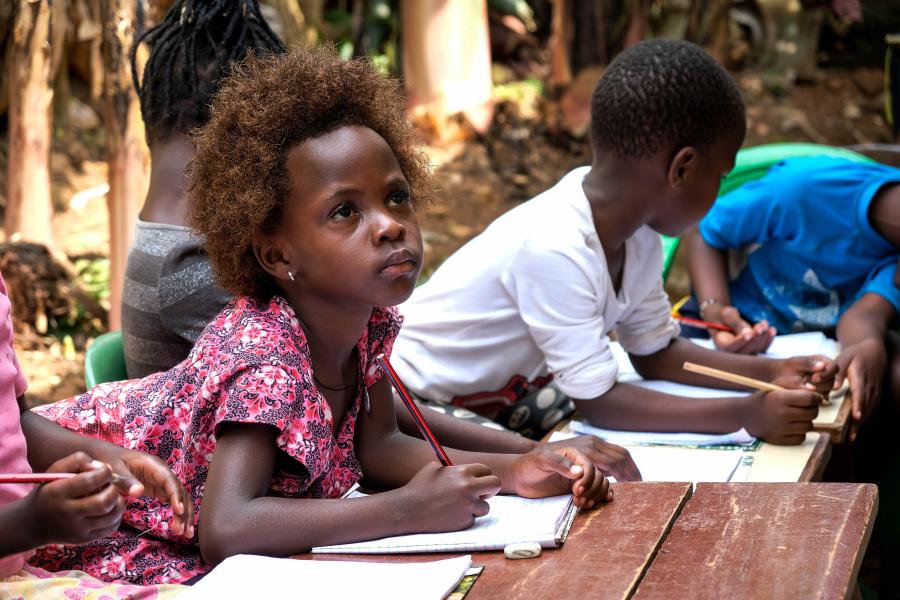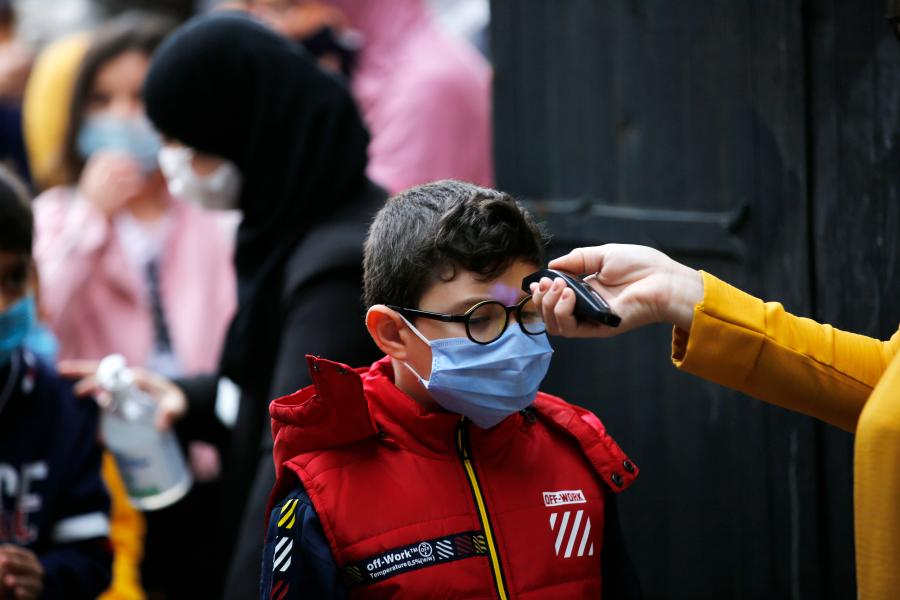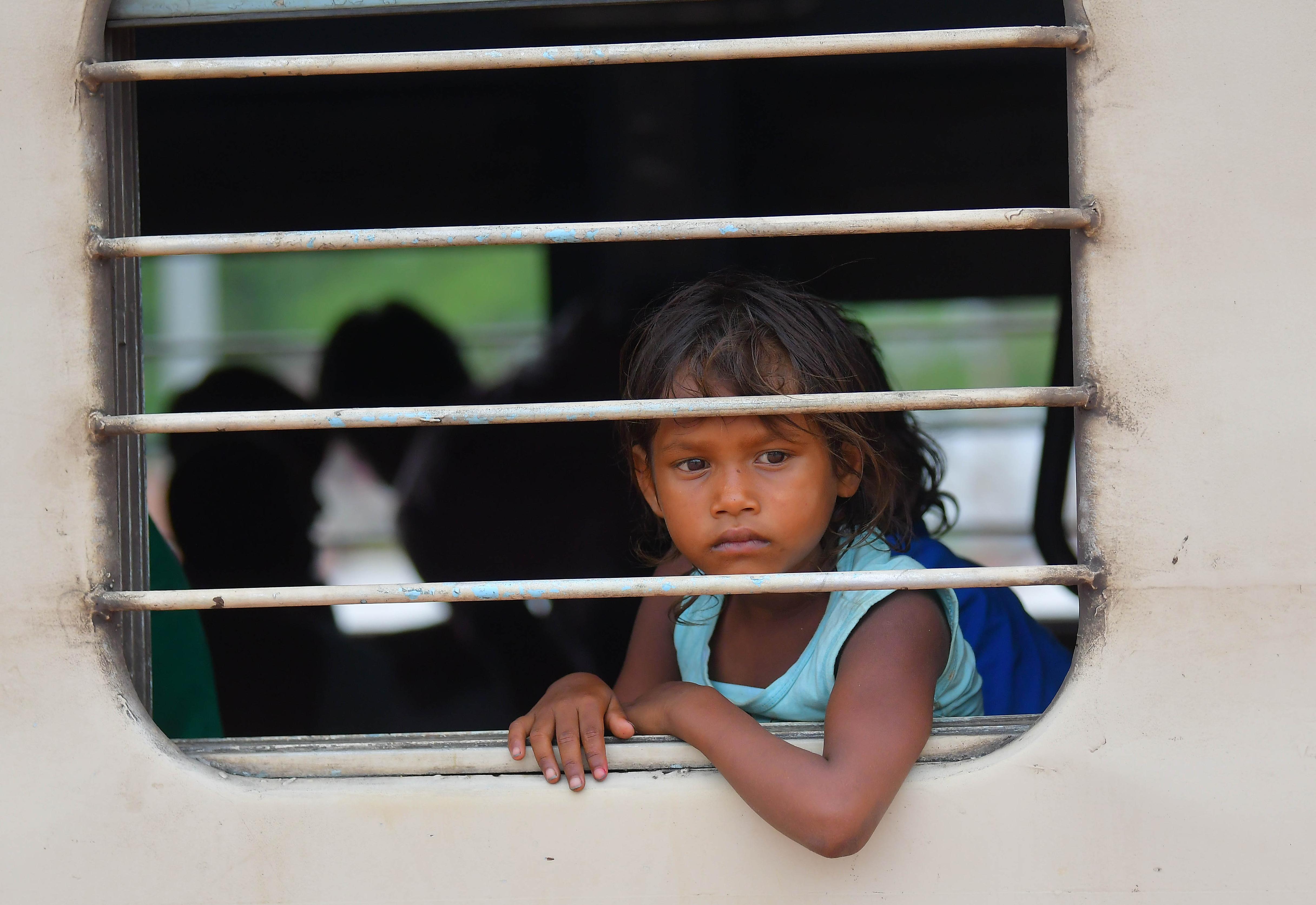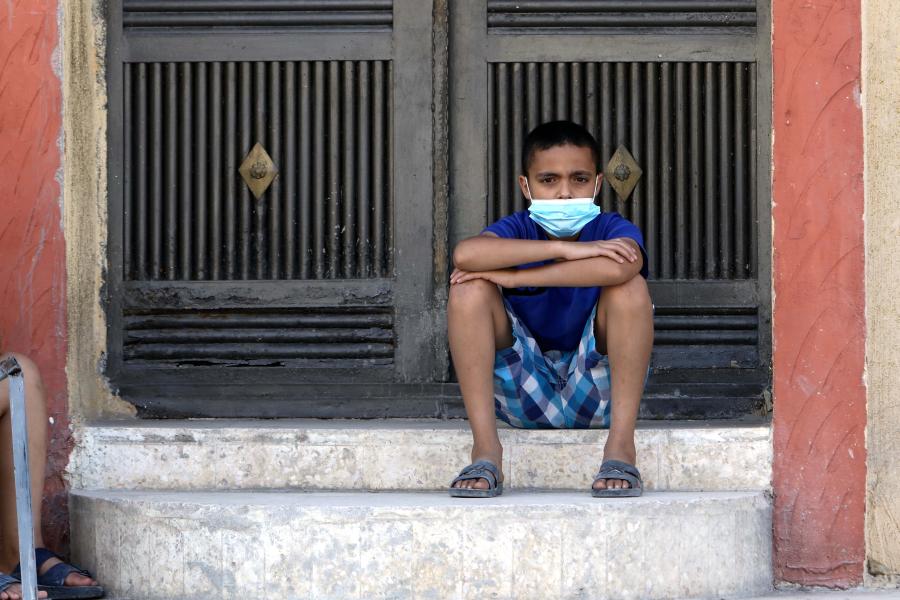-- Apart from the large number of those infected with or even killed by the virus, COVID-19 is also plunging more children into poverty and poor education, among other crises that already exist before the pandemic.
-- In fact, as UNICEF's October report noted, some 45 percent of children worldwide were severely deprived of at least one of their critical needs ranging from education, healthcare, housing, nutrition, sanitation to water even before the pandemic hit the globe.
-- As the globe will mark this year's World Children's Day on Friday, it is widely recognized that the international community should join hands immediately to save children from various child rights crises and build a better future for every child.
by Xinhua writer Guo Yage
BEIJING, Nov. 19 (Xinhua) -- Eleven-year-old Margaret Mwanza has been very happy these days, as she can finally go back to school not only to acquire knowledge, but also to have a hot meal, probably the only meal of the day.
"For the poor, lack of access to education is not the only worrying consequence of the COVID-19 pandemic. The closing of schools meant children missing out on nutrition gains," said the Zambian girl's mother, Judith Mwanza.
Margaret is just one of the numerous children worldwide who are going through more hardship and suffering amid the raging pandemic -- apart from the large number of those infected with or even killed by the virus, COVID-19 is also plunging more children into poverty and poor education, among other crises that already exist before the pandemic.
As the globe will mark this year's World Children's Day on Friday, it is widely recognized that the international community should join hands immediately to save children from various child rights crises and build a better future for every child.

A child holds bags of bread while other children wait for their turn to receive bread from a charity bakery amid fears of the COVID-19 spread as the continuing civil war in the country has pushed over 20 million Yemenis to the brink of starvation in Sanaa, Yemen, April 27, 2020. (Photo by Mohammed Mohammed/Xinhua)
VICTIMS TO PANDEMIC
"This is a universal crisis and, for some children, the impact will be lifelong," said the United Nations Children's Fund (UNICEF) in an October report.
Such an impact is first of all evident in the number of children infected with the deadly virus. For example, following school reopening, several African countries have witnessed soaring infections in students.
And the situation has been not a bit better in such developed countries as the United States. According to a report released on Monday by the American Academy of Pediatrics (AAP) and the Children's Hospital Association, almost 1.04 million U.S. children have been infected with the disease as of Nov. 12, representing 11.5 percent of the caseload nationwide.
Over the last week, nearly 112,000 child cases have been reported, by far the highest weekly increase since the pandemic began, the report said.
"As a pediatrician who has practiced medicine for over three decades, I find this number staggering and tragic," said AAP President Sally Goza in a statement.
Apart from pandemic-induced perils, children's lives are also being changed profoundly in other aspects.
Around 150 million additional children are living in multidimensional poverty due to the pandemic, UNICEF said in its October report, adding the percentage of children lacking access to education or health services will rise from 47 percent to 56 percent in the post-pandemic era.

Children attend a provisional class organized by kindergarten teacher Juliet Namanda at her home as schools are closed nationwide as a preventive measure against the spread of the COVID-19 in Kampala, capital of Uganda, June 19, 2020.
(Photo by Hajarah Nalwadda/Xinhua)
According to a May report by global charity Save the Children, almost one in four children living under COVID-19 lockdowns, social restrictions and school closures is dealing with feelings of anxiety, with many at risk of lasting psychological distress.
The physical and mental impacts can be most damaging for children in the poorest neighbourhoods. A new UNICEF report in November found COVID-19 is putting education on hold for over 137 million children -- 97 percent of students -- in Latin America and the Caribbean. A World Bank study released months ago warned that amid the pandemic, Iraqi children under 18 will face a higher increase in poverty of 15.8 percent.
The Brookings Institution recently reported that while 90 percent of children in developed countries have adapted to remote learning platforms, less than 25 percent of those in Africa have access to such platforms.
Rogers Kasirye, executive director of non-governmental organization Uganda Youth Development Link, said of some 1,500 children supported by the organization, 60 percent reported they have faced sexual exploitation during the national lockdown in the name of giving food.
"We received distress calls from some of our young people we serve daily in our drop-in centers that life had become unbearable. There was a lot of hunger, and some violence was inflicted on children," says Kasirye.

An Algerian student has his temperature checked before entering a primary school in Algiers, Algeria, Oct. 21, 2020. (Xinhua)
CHRONIC CRISES
Sadly, the COVID-19 pandemic is not the only problem threatening children's welfare. In fact, as UNICEF's October report noted, some 45 percent of children worldwide were severely deprived of at least one of their critical needs ranging from education, healthcare, housing, nutrition, sanitation to water even before the pandemic hit the globe.
"Nearly 14 million children did not receive any vaccines in 2019. Additionally, almost 6 million children received some but not all vaccines required for full protection against many life-threatening diseases," the report said.
A joint analysis by UNICEF, Clinton Health Access Initiative, Save the Children and Murdoch Children's Research Institute published on Nov. 12 suggested that severe pneumonia leaves an estimated 4.2 million children under five in 124 low- and middle-income countries with critically low oxygen levels each year.
Besides, another analysis by UNICEF and the World Bank in October noted that one in six children, or 356 million globally, lived in extreme poverty before the pandemic.

A girl looks on as she boards a train to her home amid the ongoing COVID-19 lockdown on the outskirts of Agartala, the capital city of India's northeastern state of Tripura, May 17, 2020. (Str/Xinhua)
According to the UN, the years-long war in Yemen has made 2 million children under five malnourished, and forced 2 million out of school, leaving many unable to return to their schools for more than five years, and others who are lucky enough to go back having to study in tents, straw-roof huts or even under trees. These children also faced a shortage of teachers, education equipment and other requisite infrastructure.
"We have a problem that illiteracy is spreading due to the halt of education during the years of war ... there are now children at the age of 10 and above who cannot read," Abdullah Mutanbek, headmaster of a school in northern Yemen, told Xinhua.
Children are also suffering from bullying and even more violent behaviors. Around one-fifth of the kids aged 10 to 15 in England and Wales -- equivalent to 764,000 children -- have experienced at least one type of online bullying behaviors in the year ending March 2020, said a survey by the British Office for National Statistics on Monday.
The number of school bullies identified in Japan's primary, middle and high schools, as well as special support schools, reached a record high of 610,000 in 2019, said a survey released recently by the country's Ministry of Education, Culture, Sports, Science and Technology.

A boy wearing a face mask sits on the doorstep of his residence in Baqa'a Palestinian refugee camp in Amman, Jordan, on Sept. 14, 2020. (Photo by Mohammad Abu Ghosh/Xinhua)
CRY FOR SOLIDARITY
"On Nov. 20, kids will reimagine a better world. What will you do?" asked UNICEF on its website.
Indeed, as 2020 is raising more concerns about the present conditions of childhood, it has been widely agreed that the world should come together and do more to protect children.
Many countries, organizations and businesses have already made commitments and taken actions. As a responsible major country, China has donated anti-COVID-19 medical supplies to women and children in 53 African countries through the Organization of African First Ladies for Development.

Children participate in online learning during the COVID-19 outbreak in Pamekasan, East Java, Indonesia, April 11, 2020. (Photo by Kurniawan/Xinhua)
China has also sent doctors to the world's least developed countries to cure those children developing severe COVID-19 symptoms while suffering from congenital malformation and malnutrition, and has offered financial aid and expertise to other countries' poverty-reduction efforts.
In the 12th BRICS Summit Moscow Declaration released on Tuesday, the five major emerging economies -- Brazil, Russia, India, China and South Africa -- expressed concerns over the increasing challenge to protect children from online sexual exploitation and other content harmful for their health and development, and said they look forward to strengthening cooperation to develop initiatives aimed at ensuring safety of children on the Internet.
In April, UNICEF and Microsoft announced the expansion of Learning Passport, a global learning platform to help children and youth continue their study at home, and Kosovo, Timor-Leste and Ukraine are the first to roll out their online curriculum through the platform.
A month later, UNICEF announced another partnership deal with mobile operator Airtel Africa to help provide access to online learning to an estimated 133 million school-age children in 13 countries across sub-Saharan Africa, who are affected by school closures during the pandemic.
To mark this year's World Children's Day, monuments and landmark buildings across India will light up in blue in solidarity for child rights and against the impact of COVID-19 on children's lives.

A child fills her plastic bottle with drinkable water from a China-donated water filter barrel at the Trapeang Thlan Village community pre-school in Prek Pnov district, Phnom Penh, Cambodia on Oct. 21, 2020. (Photo by Sovannara/Xinhua)
And much more can be done. According to UNICEF, governments worldwide need to adopt a six-point plan to ensure that all children learn, have equal access to health and nutrition services, particularly vaccines, as well as clean water, sanitation and hygiene, get rid of abuse, gender-based violence and poverty, and receive support amid conflict, disaster and displacement.
"Addressing the global COVID-19 pandemic is critical. However, other deadly diseases also threaten the lives of millions of children in some of the poorest areas of the world. That is why today we are urgently calling for global action from country leaders, donors and partners," said UNICEF Executive Director Henrietta Fore in a statement.
(Xinhua reporters Zhao Yupeng and Lillian Banda in Lusaka, Zhang Gaiping in Kampala, Wang Jiangang in New York, Deng Xianlai in Washington, Wang Shang, Mohammed Mohammed and Rahman Al-Ansi in Sanaa, Larry Neild and Zhang Dailei in London, Ye Shan and Jiang Qiaomei in Tokyo, and Hu Xiaoming in New Delhi also contributed to the story.)
(Video reporters: Xie E, Zou Delu, Jawid Omid, Nie Yunpeng; Video editor: Zheng Xin)



